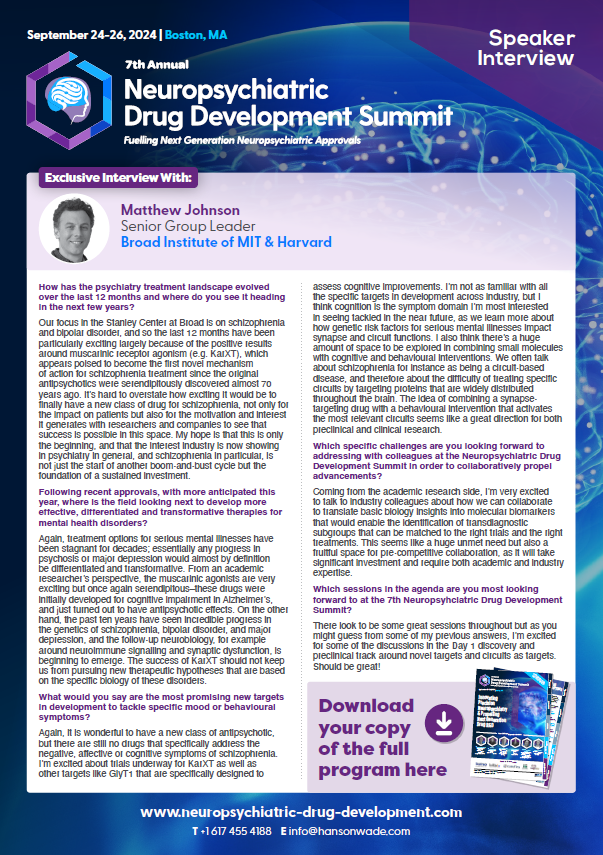Exclusive Content Related to 2025's Summit
Interview with Delix Therapeutics' Chief Executive Officer
The last 6 to 12 months have been a mixed bag - a few high-profile successes, but also many programs that have missed the mark. The current state of play, however, remains unchanged - there continues to be vast unmet need in the field of neuropsychiatry, and patients are waiting for better treatments...
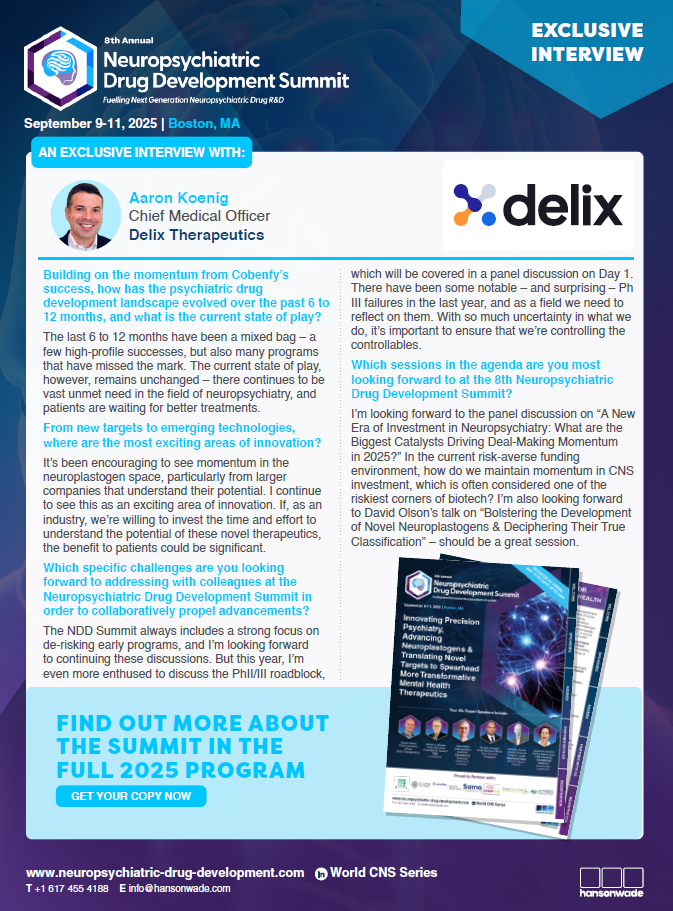
Interview with MindMed's Senior Medical Director of Clinical Development
Over the past year, we’ve seen a resurgence of interest in psychiatry, driven by a growing recognition of the urgent need for novel, more effective and safe treatments. At MindMed, we’re proud to be at the forefront of this next wave of neuropsychiatric innovation. Our late-stage clinical research is focused on transforming care for two of the most prevalent and debilitating brain health disorders: generalized anxiety disorder (GAD) and major depressive disorder (MDD)...
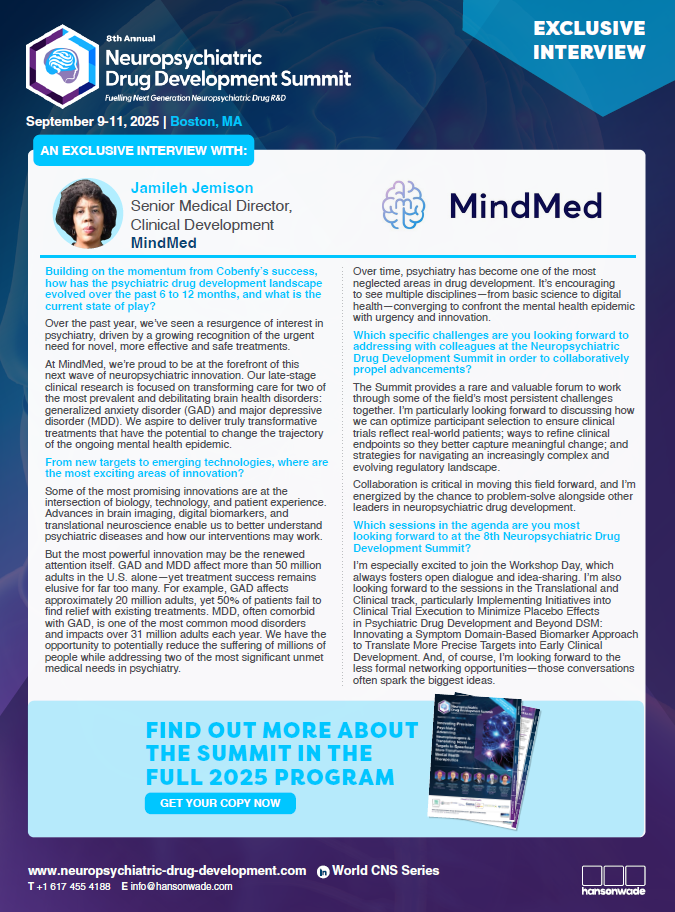
Interview with Compass Pathways' Chief Patient Officer
The most exciting area of innovation is the development of psychedelic compounds through the FDA pathway for a range of indications. As multiple sponsors progress to larger and more robust late-stage trials, there is accumulating evidence that this new class may offer truly differentiated options to patients, if approved, potentially with both rapid-acting and durable benefits....

Interview with Kinoxis Therapeutics' Chief Scientific Officer
Bristol Myers Squibb’s acquisition of Karuna and the approval of Cobenfy last year marked a real inflection point - it showed that regulators are ready to reward innovation in psychiatry and confirmed renewed confidence in the CNS space. Since then, momentum has surged: more major deals have closed, novel mechanisms are gaining traction, biomarker strategies are maturing, and there’s a clear shift toward precision psychiatry.
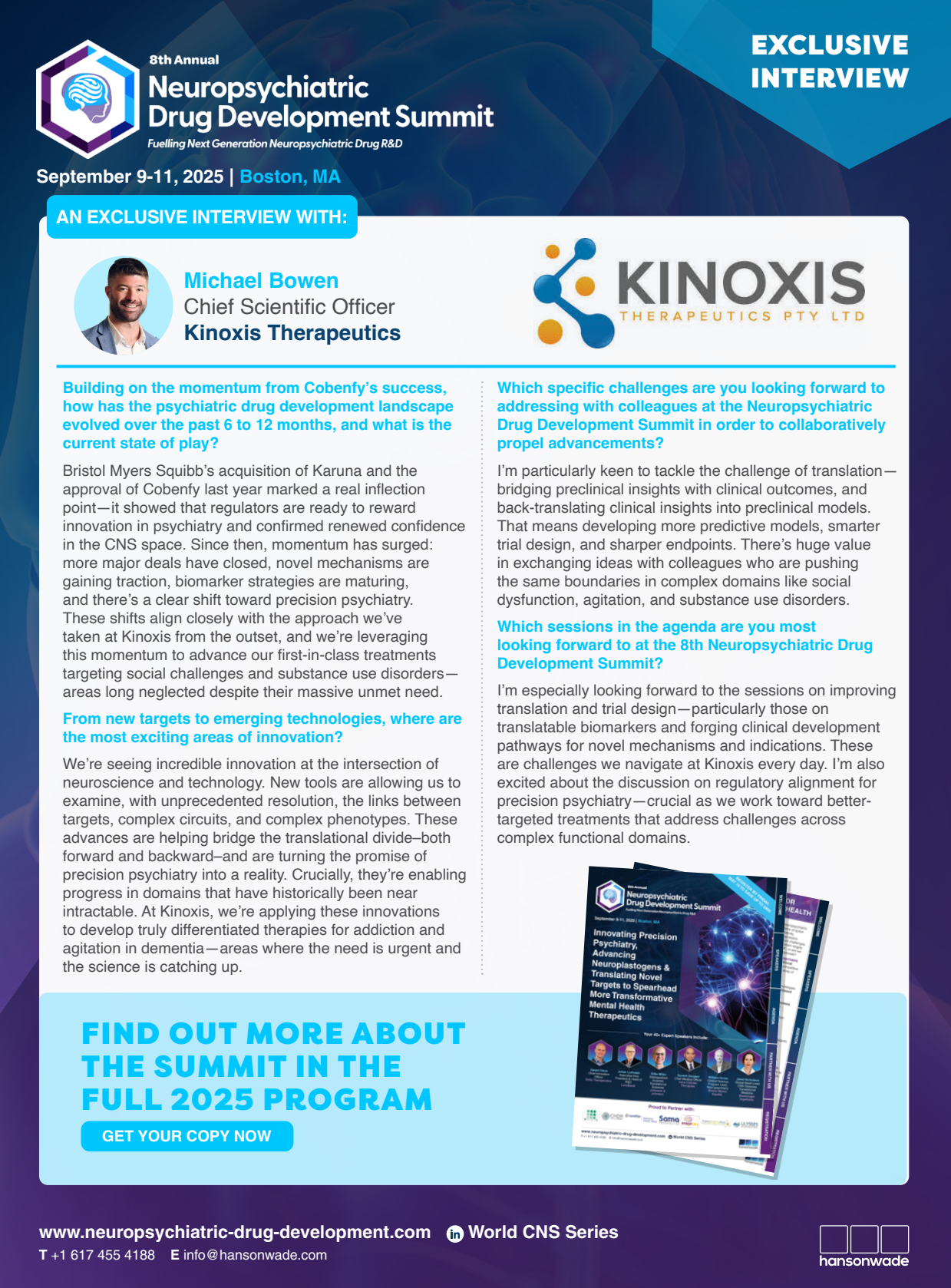
Interview with Psilera's Co-Founder & Chief Scientific Officer
The past 6 to 12 months emphasized that CNS is making a comeback after a long hiatus amongst larger pharmaceutical companies. Companies focused on neurological therapeutics dominated the M&A landscape, and were only second to oncology in overall value. Many of these deals centred around schizophrenia such as Cobenfy and Caplyta (also later for depression) with other psychiatric indications making strides through the approvals of Spravato and Auvelity for depression and Journavx for non-opioid pain treatment...

Interview with Evecxia Therapeutics' Chief Executive Officer
Commercially and from an M\&A standpoint, recent successes include Cobenfy, Auvelity, Caplyta, and even Spravato. Those successes demonstrate the massive commercial potential in psychiatry. Cobenfy, Auvelity, and particularly Caplyta win on safety. Safety = scalability. Scalability = large markets. Large markets = blockbuster potential. All four drugs are based on clinical evidence. Cobenfy and Spravato use novel mechanisms of action, while Auvelity and Caplyta optimize on validated pharmacologies of yore. Unfortunately, in depression, there have been regrettable - yet not unexpected - trial failures...
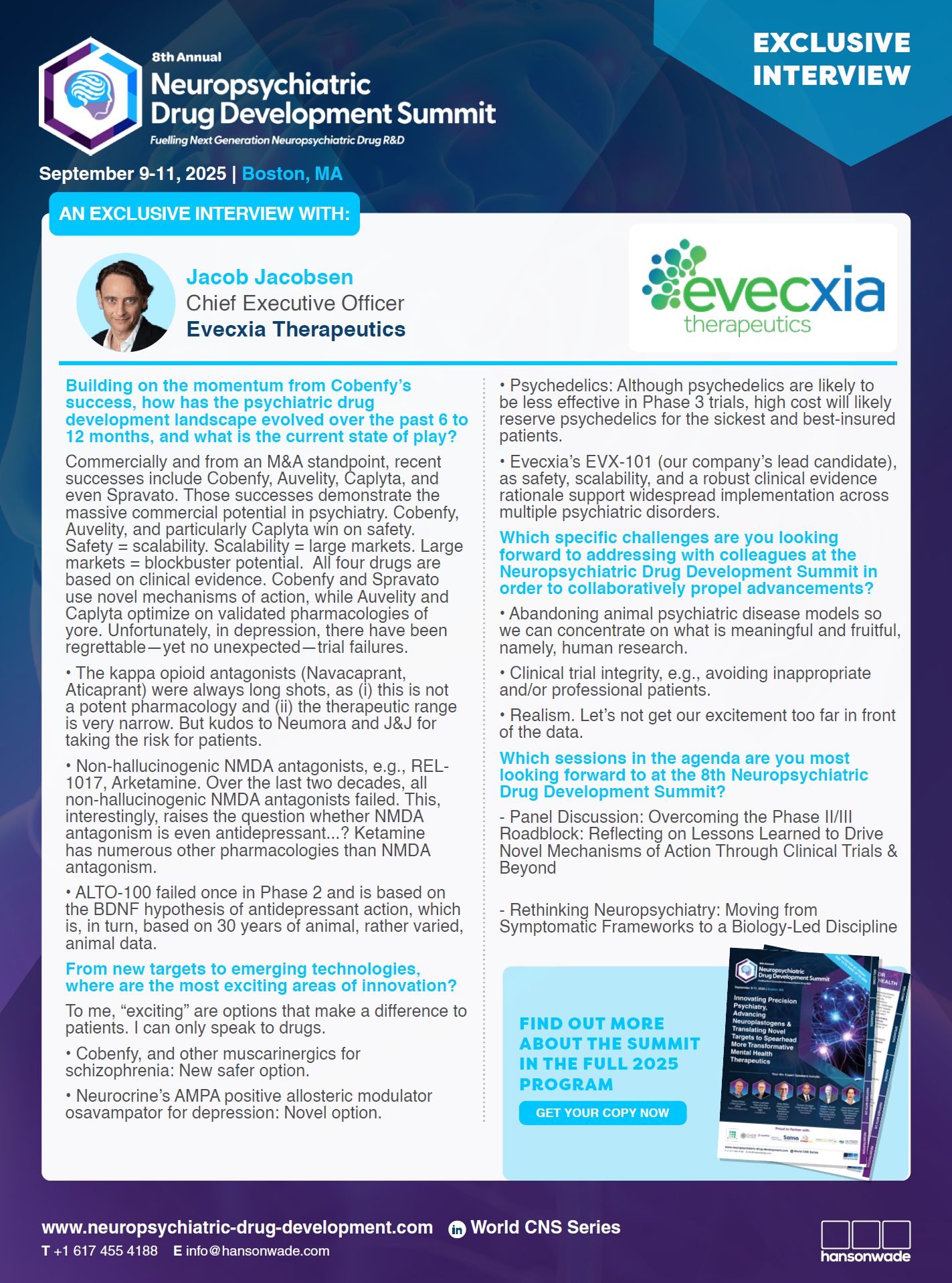
Exclusive Content From the 2024 Summit
Interview with Engrail Therapeutics' VP of Translational Science and Clinical Development
Over the past several years, there has been an increase in the recognition of common psychiatric conditions as well as greater interest from patients to seek treatment. The negative stigma associated with many psychiatric conditions continues to decrease over time. We are also observing an increase in routine screening for psychiatric conditions. In June 2023, the United States Preventative Services Task Force (USPSTF) recommended annual screening for anxiety disorders in adults under 65 years old. This is an important step forward as it will boost diagnosis rates, particularly in the primary care setting. We believe a greater diagnosis rate will also increase the rate of treatment, improving overall patient outcomes...
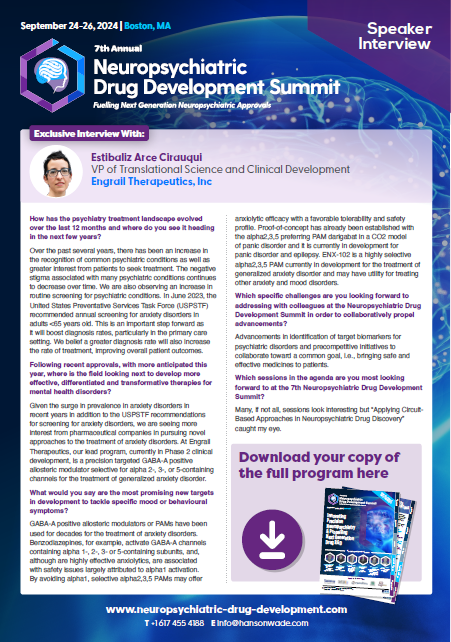
Interview with the Senior Group Leader of the Broad Institute of MIT & Harvard
Our focus in the Stanley Center at Broad is on schizophrenia and bipolar disorder, and so the last 12 months have been particularly exciting largely because of the positive results around muscarinic receptor agonism (e.g., KarXT), which appears poised to become the first novel mechanism of action for schizophrenia treatment since the original antipsychotics were serendipitously discovered almost 70 years ago. It’s hard to overstate how exciting it would be to finally have a new class of drug for schizophrenia, not only for the impact on patients but also for the motivation and interest it generates with researchers and companies to see that success is possible in this space...
